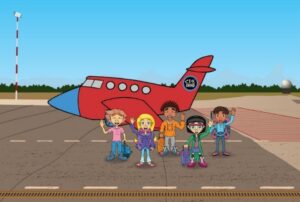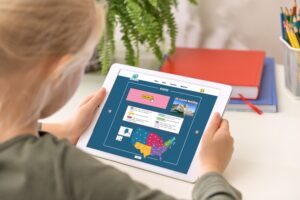By Dr Charles Margerison
Psychologist & Originator of Can Do Kids Band
There is a tendency for today’s education system, which often has a focus on exams and assessments, to result in students being reactive in their approach to life. So, how do we support and encourage students to become proactive and develop their own potential?
In my research on the careers of more than 500 amazing people, I noted that regardless of their education, achievers focused on an important purpose. They took the initiative to make improvements in health, nutrition, safety, architecture, engineering, medicine and other key areas.


Amazing people became amazing because they focused on an important purpose and developed their abilities to convert ideas into results.
To inspire students, I have developed a virtual music group, the members of which all have ‘can do spirit.’ That means they are proactive and have purpose. This has been built into an online learning resource that is available at www.candokidsband.com, for students to explore the world together with the band.
Students become engaged by understanding the songs and dances in different countries as they explore different cultures and ways of life. Students can tour each of the countries at their own pace using the Explorers Guide, the learning exercises and the videos.
In each of the visits, students can compare cultures and ways of living. Students are encouraged to do research and projects about the country, such as the style of music, or the types of food, standard of life, or the history of the people.
When doing a project, we encourage students to develop their ‘can do skills and abilities.’ These are factors we invite students to consider and write about.
How we use our time will determine who we become and what we achieve. The Can Do Kids Band are exemplars of how to use time effectively to produce results.


There are different forms of learning, and this becomes clear on the visits that the band members make. They learn about new languages, customs and cultures, as well as key facts about geography and history.
Visiting various countries, The Can Do Kids Band recognizes the importance of keeping fit. They make sure they take exercise and eat fruit and other healthy foods.
Amazing achievers had many barriers to overcome, but persisted, rather than give up when faced with problems. ‘Can Do Spirit’ is the willingness to keep going in times of difficulty and this is illustrated by the band as they tour from country to country.
The Can Do Kids Band members all have different personalities and they use their character strengths to practice various ways of dealing with stressful situations.
Learning how to be an effective member of a team is a key skill. The band members are excellent exemplars of this, as they collaborate and play their music in unison.
In addition to studying the prescribed school subjects and curriculum, students need to discover their personal interests. The band members share common interests in music and individual hobbies as examples.
In school, the emphasis is often on acquiring knowledge to pass examinations. In work situations, the emphasis is primarily on action applications. The Can Do Kids Band show it is important to have both the knowledge and the skill, and to also make applications.
Converting opinions and ideas into decisions requires data based on research and feedback. Group projects are a valuable way to do this as shown by the band as they plan their tours.
Optimism builds confidence and vice versa. Students can learn from the band members as they practise, work hard and share their experiences.
These ten factors are a good basis for students to assess their own strengths and develop plans for improvement.


As part of the resource suite on the site, we ask students to write at least 100 words on: ‘What I have learned about myself from this activity?’
Amazing people focused on a purpose that was important to them. They developed the skills to support their purpose as indicated in this article.
This intercultural project-based approach can be used with students to help them understand the wider world and the opportunities it provides.
The Can Do Kids Band learning platform is an engaging way of learning, and supports students personal development, as a complement to traditional education. It helps students understand different ways of life and supports them in taking a proactive approach to life at school and beyond.


Dr Charles Margerison, President and founder of Amazing People Worldwide, is a Psychologist. He is also President of Amazing People Schools. Dr Margerison has consulted widely for major organizations in the fields of organizational and educational psychology. He was previously Professor of Management at Cranfield University, UK, and the University of Queensland, Australia. He founded Amazing People Worldwide in 2006 and is supported by a dedicated global team. He previously co-founded Emerald Publications, and Team Management Systems and has authored more than 30 books. He has created the Amazing Career Achievers Library, which records the life stories of amazing people. Dr Charles is also the creator of ‘Can Do Kids Band’, a virtual music group that helps students to learn about countries and cultures through music. He has also developed Imagineland, for early learners. You can follow him on Linked in .
For more information, please email info@amazingpeopleworldwide.com
Websites:






Copyright © 2021. Amazing People Worldwide.
All Rights Reserved.
This site is protected by reCAPTCHA and the Google
Privacy Policy and Terms of Service apply.



